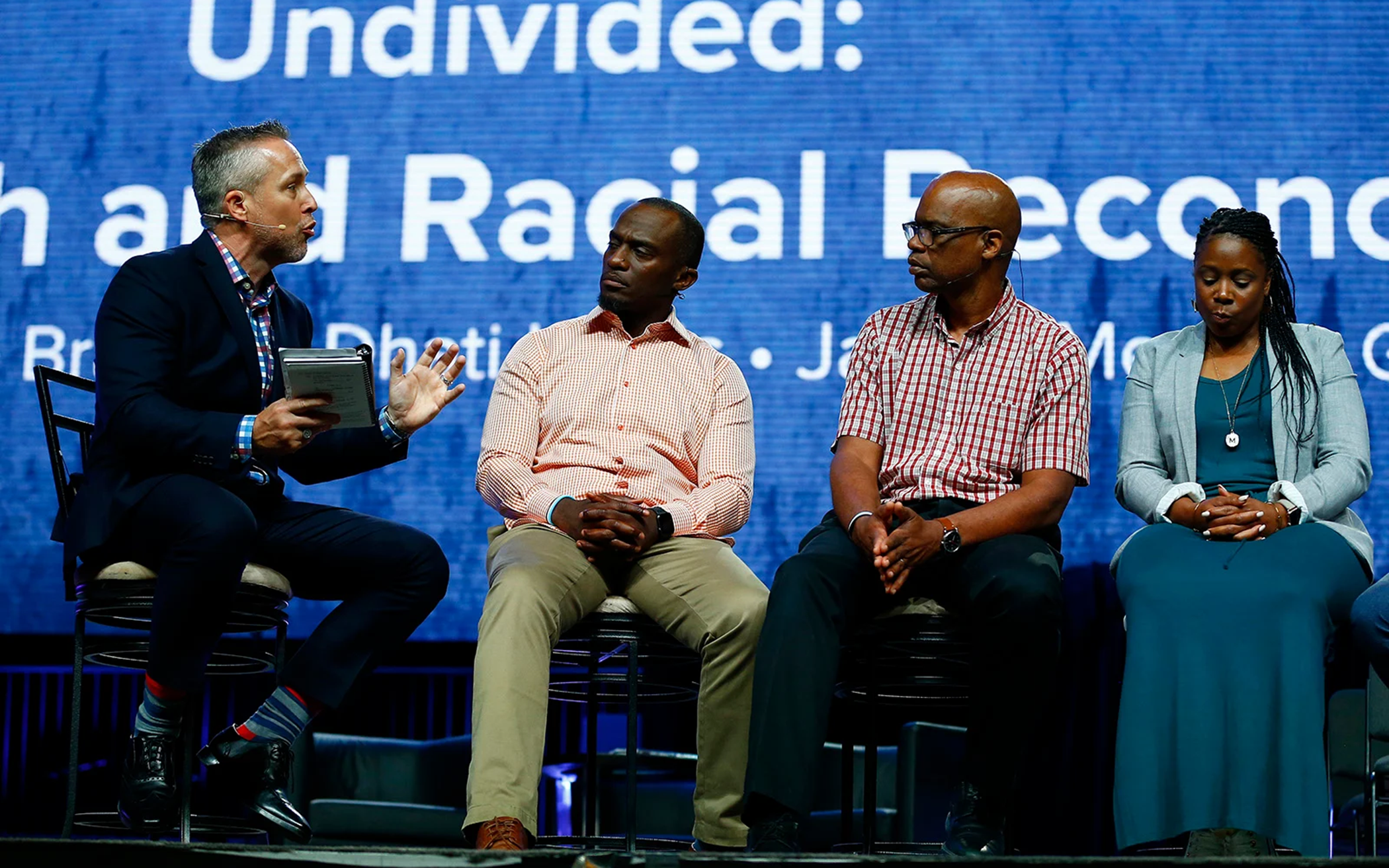The Banner has a subscription with the Associated Press to republish religion and faith content from AP, RNS, and The Conversation. This story from Religion News Service was first published there Jan.8.
Southern Baptist Convention officials admitted it would have been better if they’d contacted Black leaders of their denomination before issuing a statement decrying critical race theory, which led to the departure of several Black pastors.
In response to weeks of reaction to the statement and a request for a meeting from the SBC’s National African American Fellowship, the denomination’s seminary presidents and fellowship leaders met Jan. 6.
In late November, the leaders of the six SBC seminaries — all of them white men — declared critical race theory, a set of ideas about systemic racism, was not compatible with the statement of faith of the nation’s largest Protestant denomination.
After the presidents issued their statement, several Black church leaders announced they were leaving the mostly white denomination.
The only Black person to serve as the denomination’s president, New Orleans pastor the Rev. Fred Luter, signed a statement on justice and repentance on Dec. 18. That document, initially issued by 20 Black and white SBC leaders, noted SBC progress on becoming more inclusive but added that “some recent events have left many brothers and sisters of color feeling betrayed and wondering if the SBC is committed to racial reconciliation.”
Later in December, the seminary presidents told The Washington Post they regretted that the statement “inadvertently caused significant hurt among some Black brothers and sisters.” That was not their intention, they said, “even as we expressed our genuine concern about what we see as dangerous ideologies.”
Following the Jan. 6 meeting, in a joint statement issued Jan. 8, leaders of the SBC’s National African American Fellowship and Council of Seminary Presidents said they had an “honest and open conversation” during the virtual meeting. They discussed “our various perspectives on all these issues” and vowed to continue talking.
“All of us acknowledge that conversations of this nature should have happened ahead of time,” they said in the statement. “The Council of Seminary Presidents regrets the pain and confusion that resulted from a lack of prior dialogue. Together, all of us are committed to condemn and fight racism in every form, personal and structural, in consistency with the 1995 SBC Resolution on Racial Reconciliation and the Baptist Faith and Message.”
The discussion included joint plans to sustain and increase Black student enrollment at the seminaries.
“The seminary presidents shared the conviction that CRT (critical race theory) will not be taught at their seminaries,” the Rev. Marshal L. Ausberry Sr., president of the African American fellowship, told Baptist Press. “That’s their role to make those decisions, and we can respect that.”
Danny Akin, chairman of the seminary council, told the denomination’s news service that the meeting demonstrated the “love and respect each has for one another.”
SBC Executive Committee President Ronnie Floyd and SBC President J.D. Greear also joined the meeting, which Baptist Press reported lasted for about three hours.
Greear had affirmed the seminary presidents’ original statement but also urged Southern Baptists to consider the later “Justice, Repentance, and the SBC” statement, which argued that “(s)ome in the SBC appear to be more concerned with political maneuvering” than racial diversity.
Greear told Baptist Press these discussions “need nuance, grace and better efforts at mutual understanding” and expressed regret for the timing of the conversations.
“Our brothers and sisters of color absolutely should have been at the table—from the beginning—as we consider questions about what a gospel-based response to racism in our country looks like,” Greear said. “I apologize for how this whole situation has made many of our brothers and sisters feel. Your voices are important in shaping our shared future.”
During the meeting, the leaders learned of the riots that had broken out when supporters of President Donald Trump stormed the U.S. Capitol. The Baptist leaders paused and prayed for the country.
© 2021 Religion News Service
About the Authors
Adelle Banks, Religion News Service
Religion News Service is an independent, nonprofit and award-winning source of global news on religion, spirituality, culture and ethics.

